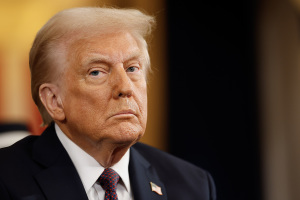Ron Paul Fails to Clinch Speaking Slot at GOP National Convention
Ron Paul has lost his last chance to be nominated, or clinch, a speaking slot at the Republican National Convention in Tampa, Fla., with his campaign's failure to secure a plurality of delegates at the state Republican convention in Nebraska.
The libertarian Texas congressman, who wanted to use his delegates and supporters to influence the direction of the Republican Party in the August convention, won only two of Nebraska's 35 national convention delegates. Presumptive Republican candidate Mitt Romney, whose delegates Paul wanted to out-organize in Tampa, got the rest.
According to Republican National Committee rules, a candidate must have a plurality of delegates in five states to be officially eligible for the nomination at the national convention and be granted up to 15 minutes for a nominating speech.
Paul was hoping that the Nebraska convention would give him a plurality of delegates along with delegates from Iowa, Louisiana, Maine, and Minnesota. But Paul lost it all, results on Saturday showed. Now, it's up to Romney and convention organizers to decide whether to include Paul in the proceedings in late August.
However, Paul's insurgent spirit remains strong. His campaign is planning on bringing as many as 500 supportive delegates to Tampa to make his presence known. Paul is planning a rally in Tampa around the convention, and his supporters have organized Ron Paul Festival, an independent event that will include live music, according to ABC News.
Paul had said his delegate count gave him "a tremendous position to grow our movement and shape the future of the GOP." He believes in a non-interventionist foreign policy and decriminalizing drugs, and says government should not have a role in some of the conservative social causes.
The Texas Congressman is also asking Romney not to select former Secretary of State Condoleezza Rice amid rumors that she could be his running mate. "I don't dictate anything to anybody, but they wouldn't be very happy with her," Paul said in an interview with the Fox Business Network. "She represents a foreign policy quite different than what energizes college campuses today."





























